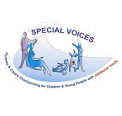Herschel Grammar School

Herschel is a selective, co-educational secondary school serving Slough and its surrounding areas.
In our latest inspection the school was deemed outstanding in all categories by Ofsted.
Herschel has a warm and vibrant atmosphere built on an ethos of mutual trust, high academic standards and a commitment to nurturing and developing every individual pupil.
We provide the very best opportunities to ensure every child achieves their potential.
Who to contact
- Telephone
- 01753 520 950 01753 520 950
- hpa@herschel.slough.sch.uk
- Website
- Herschel Grammar School
- Scan to visit this website
Where to go
- Name
- Herschel Grammar School
- Address
-
Northampton Avenue
Slough
Berkshire - Postcode
-
SL1 3BW
Find SL1 3BW on a map
Time/date details
- When is it on
- Monday to Friday 8:25am-2:50pm
Local Offer
- Contact name
- Chloe Barton
- Contact telephone
- 01753520950
- Contact email
- cba@herschel.slough.sch.uk
- Local Offer age bands
-
Secondary (11-16 years)
Transitions to Adulthood (16+)
Schools extended Local Offer response
- Special Educational Needs policy
-
- Teaching and learning
What provision is there for students with Special & Additional Educational Needs?
School staff will support individuals at a level appropriate to their needs through effective differentiation in the classroom. The Special Educational Needs Co-Ordinator (SENCO) aims to ensure the fullest possible access to the curriculum for students on the SEN List. The provision is reviewed termly to ensure it addresses the needs of current students.
How will I know how my child is doing?
In addition to the normal school reporting process, all students on the SEN list will have a termly review with the SENCO, which is the feedback from the Link teacher reviews. The SENCO will contact the parents and will conduct the reviews and discuss provision and any adjustments if needed. The SENCO will also advise teaching staff about strategies to support the student in mainstream lessons and will liaise effectively with Learning Support Assistants who are working with the designated students.
Students with an Education, Health and Care Plan will also have an Annual Review Meeting and outside agencies may be invited to attend.
Reports you may receive would include:
- annual review
- school reports
- individual pupil profiles
- contact with Head of learning and/or tutor
- planner communication.
What are the school’s approaches to differentiation?
Differentiation is seen as a priority in all lesson planning and in additional provision; this is supported by the SENCO who works closely with teachers to help them fully support all students.
Effective differentiation will enable your child to participate fully in all aspects of learning and to make the best possible progress.
How does the school know how well my child is doing?
Teaching staff enter assessment data on individuals on a half termly basis. This ensures that there is always relevant and up to date information about the level that is currently being achieved by each student. In addition to this, Heads of Learning review targets and progress. The SENCO reviews the trackers to monitor the progress of SEND students.
- Identifying and assessing Special Educational Needs
How does the school know if students need extra help and what should I do if I think my child may have special educational needs?
A student may be identified as having a Special Educational Need (SEN) at any stage during his/her education. This may be a long term difficulty requiring continuing support or a short term difficulty requiring a specific intervention.
Information about your child’s special educational needs comes from a number of sources:
- primary school liaison for Year 7 transfer
- cognitive abilities tests
- Exact screening
- link teacher reviews
- teacher feedback
- parental concern
- student self-referral
- Head of Learning review.
- Involving parents and children/young people in planning and reviewing progress
Herschel Grammar School aims to be fully inclusive. All students who meet the admissions criteria are welcome, including those with special educational needs.
The arrangements for their admission will be in accordance with the School's Admissions Policy.
Parents/carers of a student with an EHCP have a right to choose a mainstream academy. Section 19 of The Children and Families Act 2014 and The Equality Act 2010 strengthens the right of children and young people with EHCP’s to be educated in a mainstream academy, unless this is incompatible with the efficient education of other students and no reasonable steps can be taken to prevent the incompatibility.
We have close links with our partner primary schools.
The key liaison activities are:
- meetings with the SENCOs from primary schools
- observations in primary schools
- extra transition days or mornings if appropriate.
How will I be involved in discussions about and planning for my child’s education?
- All students in the school have regular reports and subject evenings. There are also regular meetings for parents to inform them about events for relevant year groups.
- Parents may also contact any of their child’s teachers directly using the email address given on the school website.
- If your child has SEND he/she will be placed on the SEND List and you will be invited into school to discuss provision to address their needs. Your child will have his/her progress monitored by the SENCO who will meet with you to discuss progress and plan further support.
- The Provision Map is written by the SENCO using information from parents and teachers to support your child in school. It contains information about the student’s special educational needs, appropriate provision and interventions, and advice for teaching staff.
- In addition, students with a statement of Special Educational Needs, or Education, Health and Care Plan will have a multi-professional Annual Review that looks carefully at progress towards the learning objectives.
- There is advice and resources for supporting your child with independent study available through the school SENCO.
How will I know what progress my child should be making?
Parents will receive regular formal reports from subject staff. In addition to this there are the subject evenings which provide an opportunity to meet with subject staff and discuss progress.
Furthermore, those students on the SEN list will have their progress reviewed by the SENCO and changes discussed with parents/carers.
How will the curriculum be matched to my child’s needs?
The teachers aim to ensure the fullest possible access to the curriculum for students with SEND. The provision is reviewed every year to ensure it addresses the needs of current students. Where appropriate awareness training is carried out at the start of each academic year to enable staff to be fully aware of the needs of SEND students. The provision map offers strategies for support.
In Key Stage 4, access arrangements are put in place to ensure that students are able to achieve their maximum potential. Some sets are smaller to allow greater teacher input in some subjects.
What should I do if I think my child may have special educational needs?
If you think that your child may have special educational needs that have not been previously identified, you should contact the school and ask to make an appointment with the SENCO.
- Additional support
How will my child be included in activities outside the classroom, including school trips?
Most students with additional needs are supported and encouraged to be fully involved in all areas of school life. All clubs and trips are open to them and individual arrangements are planned in advance to ensure that they are able to participate.
For students with medical/physical needs, any issues around trips and activities will have been discussed and addressed with parents.
For students with AEN/SEND, individual issues will have been discussed with the parents, Head of Learning and tutor.
How accessible is the school environment?
There is clear signage and stairs are colour coded to assist students’ movement around the school. Advice has been taken from the Sensory Advisory Service to ensure that as high a standard of safety as possible.
The school is on four floors which are inaccessible to wheelchair users as there are no lifts. There is a stair wheelchair which allows students access to the science rooms. Entrances to the school are on one level; therefore the ground floor and the first floor are the only floors accessible to wheelchair users.
There is a computer room accessible on the ground floor along with printing facilities.
Disability toilets are available.
How are the school’s resources allocated and matched to students’ special educational needs?
We aim to address the needs of our students and target resources to meet the needs of SEND students that will enable them to achieve their full potential. This may take the form of laptops or iPads for use in lessons or LSA support to assist with physical tasks for students with an EHCP.
How is the decision made about how much support my child will receive?
The decision making process is informed by the data and information received from the previous setting. This, alongside current assessments, is discussed with the student and parents at a meeting with the SENCO. As a result of the meeting, a programme to address the child’s needs is agreed until the next review period. The programme will have targets specific to your child which are central to the ensuing review: future provision is decided on how far these targets are being met.
The needs of each student on the SEND List are very carefully reviewed and considered for the coming year. This information is placed on the Provision Map which informs our allocation of support. In this way, we endeavour to address the needs of each individual with a specific programme of support and teaching.
Remote Learning
If pupils are not in school because they have been asked to self-isolate or because the school is closed to a particular cohort of pupils:
- SENCO and LSA's will regularly keep in touch with all SEND pupils
- subject teachers will set differentiated online work and monitor progress
- regular communication with SEND parents where progress is not being made
- each EHCP student will have a risk assessment to ensure their needs can be safely met in the educational setting.
- Extra activities
There are a range of extra-curricular activities for students of all needs and abilities. These opportunities range from many sports clubs to drama, gardening, science, film, coding, Minecraft and chess.
For those students that have difficulty with social skills, there is a weekly board game club to help develop communication skills run by the SENCO and trained sixth form students.
- Meeting social and emotional needs of children/young people
What support will there be for my child’s overall well-being?
All students are supported by their Head of Learning and their Tutor. In addition, students with SEND or AEN may be included in social skills and mentoring programmes.
What is the pastoral, medical and social support available in the school for children with SEND?
Interventions include:
- sixth form Mentors
- SENCO and LSA mentoring
- rewards
- individual plans
- celebration assemblies
- liaison with outside agencies
- stress management
- school counsellor
- input from Sensory Support Service
- behaviour support
- social skills board game club.
How does the school manage the administration of medicines and providing personal care?
Herschel Grammar School is mindful of the need to safeguard the well-being of all students and management of first aid arrangements will be undertaken in such a way as to ensure there is adequate training of staff, provision of first aid equipment and recording of first aid treatment.
Logging administration of medication
In the Year 7 induction pack is a letter which explains our procedures for the administration of medicines.
Parents are requested to complete the ‘Request for school to administer medication form’ and return it to the school office where Mrs Smajlaj and Mrs Stringer will enter it into the medication log.
Spare epipens and asthma inhalers are kept in the school office for students. A log of regular medication is kept.
Care plans are put in place in consultation with parent/carer as appropriate. The Care Plan outlines arrangements for administration of medicines by Student Support, and provides advice for teaching staff and those arranging trips. Children with Care Plans are listed on the school SEND list under the section physical need which ensures that teachers are aware of the child’s specific need. This is updated as soon as we are made aware of the child's need.
What support is there for behaviour?
Heads of Learning, along with the SENCO and, if deemed necessary, external agencies work together to support pupils to overcome behavioural issues that may be creating barriers to their learning. There is further support accessible from the SEN team at Beechwood School, as well as other Slough schools.
There is a clear Behaviour Code, with rewards and sanctions, within the school which all staff and students are expected to follow. The Heads of Learning and Tutors provide individual support and guidance for students who may be showing behaviour of concern in order to address the issues that may be causing the behaviour. This is supported by the SENCO and LSA’s who also support students to manage their behaviour in individual sessions and small group work.
How will my child/young person being able to contribute his or her views, and how will the school support my child to do this?
There are student surveys which invites all students to consider and express their concerns and ideas in a positive way. The School Council is a committee of students who meet regularly to represent the views of their peers with the Assistant Headteacher and the Year council where they meet with the Head of Learning. Students are involved in every discussion about their progress and the planning of next steps.
What Specialist Services are available within or accessible to the school
Within School - there are staff who have considerable experience in teaching children with dyspraxia, dyscalculia, sensory impairments and behavioural difficulties, autism and general learning difficulties.
Outside agencies include:
- Educational Psychology Service
- Educational Welfare Service
- School Nurse
- Speech and Language Service
- Virtual Schools
- Child & Adolescent Mental Health Service
- Sensory Support Service
- The Alternative Provision College
- Daisy’s Dream
- Careers
- Social Care
- Occupational Therapy
- Independent Counselling.
- Keeping up to date with knowledge and skills
What training are the staff supporting students with SEND had or are having?
The following training for teaching students with special educational needs is considered essential.
- specific learning difficulties
- general learning difficulties
- autism
- hearing impairment
- visual impairment
- English as an additional language
- Sensory Support
- Disability Awareness
- First Aid.
In addition, there is regular training in:
- Child Protection and Safeguarding
- First Aid
- Outstanding Teaching
- Looked After Children
- Mental health and emotional wellbeing.
Specific training for the Pastoral and SEN team includes:
- Speech and Language
- self-harm
- ASD
- Access Arrangements
- Diagnostic Assessment
- Emotional wellbeing
- Anxiety and dealing with stress.
We work closely with Educational Psychologists and Behavioural Support services, along with:
- speech and language specialists
- hearing and visual impairment specialists
- medical professionals
- occupational therapists
- physiotherapists.
- Transitions
Herschel Grammar School consciously manages transitions in order to ensure that the needs of all of our pupils are met from the time that they enroll in Herschel Grammar School to the time that they transition to their next destination.
Heads of Learning and the SENCO work effectively with primary schools in order to manage the transition of pupils from Y6 to Y7.
We also ensure that action is taken to ensure a stable transition for our pupils from Herschel to their next destination, be it a Sixth Form College or University.
We screen all of our Y7, Y9 and Y12 pupils in order to ensure that we have identified any additional educational needs or access arrangement requirements.
- Helpful contacts
Who would be my first point of contact if I want to discuss something about my child?
If your concern is about well-being or behaviour, then you need to speak to your child’s Head of Learning.
- Mr D Brown- Year 7.
- Mr C O'Donnell - Year 8.
- Miss E Wood- Year 9.
- Mrs L Cobb - Year 10.
- Mrs B Smith– Year 11.
- Mrs T Malik- Year 12.
- Mrs C Sharpe- Year 13.
Check Herschel School website for the Head of Learning email address.
For medical issues parents should contact the school’s Medical Needs Coordinator, Mrs Smajlaj.
The school's ANCO is Miss Nolan. Email mno@herschel.slough.sch.uk.
The Schelwood Trust SENCO is Mr Kamran Samad who is based at Beechwood School. Email k.samad@beechwood.slough.sch.uk.
School telephone number is 01753 520 950.
Last updated
Last updated - .
Disclaimer
This information has been collected from third party providers. Slough Information and Services Guide and Slough Borough Council cannot accept responsibility for the accuracy of this information and recommend that parents, carers, young people, residents and professionals check with providers regarding DBS (Disclosure & Barring Service), OFSTED and CQC registrations.





